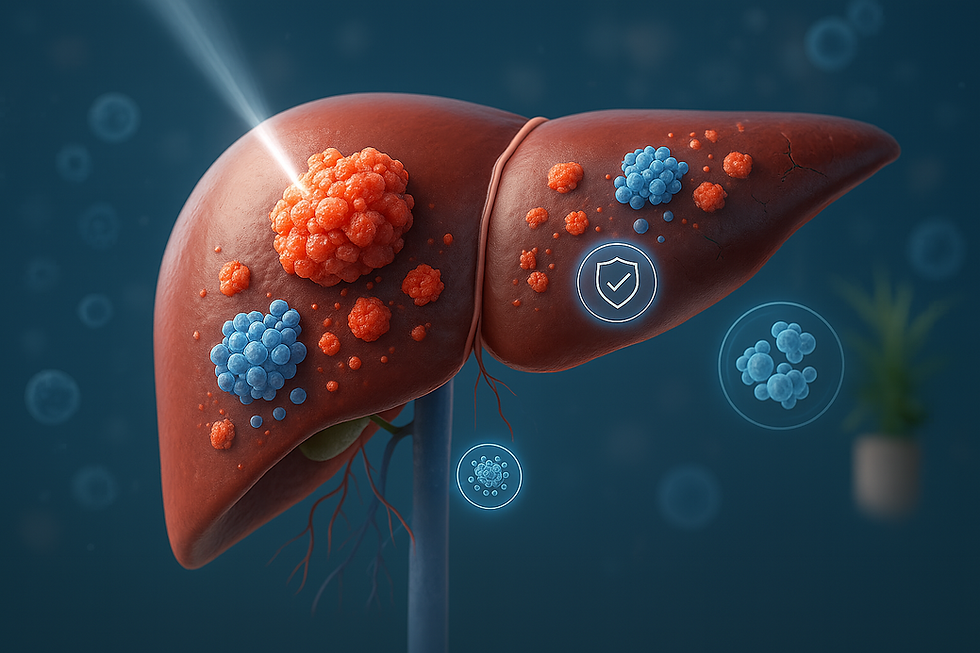Treatment of Osteosarcoma with Dendritic Cells in Germany and Austria
- Doctoury

- Jun 11, 2024
- 4 min read
Updated: Jun 12, 2024
Treatment of Osteosarcoma with Dendritic Cells in Germany and Austria
Osteosarcoma is the most common type of bone cancer, predominantly affecting children and young adults. Traditional treatments include surgery, chemotherapy, and radiation, but advancements in medical science have introduced innovative treatments like dendritic cell therapy. This blog provides an in-depth look at the symptoms, causes, diagnosis, and treatment of osteosarcoma, emphasizing the groundbreaking dendritic cell therapy available in Germany and Austria. Additionally, we'll explore how Doctoury.com can assist patients in accessing these advanced treatments abroad.
Recognizing the symptoms of osteosarcoma early can significantly improve treatment outcomes. Common symptoms include:
Pain and Swelling: Persistent pain and swelling in the affected bone, often worsening at night.
Limping: Difficulty walking or a noticeable limp if the tumor is in the leg.
Limited Movement: Stiffness or decreased range of motion near the affected joint.
Fractures: Bones weakened by the tumor may fracture easily with minor injuries.
Palpable Mass: In some cases, a noticeable lump or mass can be felt on the bone.

The exact cause of osteosarcoma is not fully understood, but several risk factors have been identified:
Genetic Predispositions: Conditions like Li-Fraumeni syndrome, hereditary retinoblastoma, and Rothmund-Thomson syndrome increase the risk of developing osteosarcoma.
Previous Radiation Therapy: Patients who have undergone radiation therapy for other cancers have a higher risk of developing osteosarcoma.
Bone Growth Spurts: Rapid bone growth during adolescence is a potential contributing factor.
Gender and Age: Males and individuals under 25 are more frequently affected.
Accurate diagnosis of osteosarcoma involves a combination of clinical evaluations and diagnostic tests:
Medical History and Physical Examination: Initial assessment includes a thorough review of symptoms and a physical examination.
Imaging Tests:
X-rays: The first step to visualize the affected bone and detect abnormalities.
CT Scans and MRI: Provide detailed images to assess the tumor's size, location, and potential spread.
Bone Scans: Help determine if the cancer has metastasized to other bones.
Biopsy: A definitive diagnosis is made by examining a sample of the tumor tissue under a microscope. This can be done through:
Core Needle Biopsy: A needle is used to remove a small tissue sample.
Surgical Biopsy: A larger tissue sample is obtained through a minor surgical procedure.
The treatment of osteosarcoma traditionally involves a multidisciplinary approach combining surgery, chemotherapy, and sometimes radiation therapy. Recently, dendritic cell therapy has emerged as a promising treatment option, particularly in Germany and Austria.
Traditional Treatments
Surgery: The primary treatment to remove the tumor and some surrounding healthy tissue to ensure complete removal. Limb-sparing surgery is preferred, but amputation may be necessary in severe cases.
Chemotherapy: Often used before and after surgery to shrink the tumor and eliminate any remaining cancer cells. Common drugs include methotrexate, doxorubicin, and cisplatin.
Radiation Therapy: Less commonly used, but may be recommended if surgical removal of the tumor is not possible or to manage pain.
Dendritic Cell Therapy
Dendritic cell therapy represents a cutting-edge approach to treating osteosarcoma by leveraging the body's immune system. Here’s a detailed look at the process:
Cell Collection: Dendritic cells are harvested from the patient's blood.
Activation: These cells are exposed to osteosarcoma antigens in the lab, which "educates" them to recognize and attack cancer cells.
Reintroduction: The activated dendritic cells are then reintroduced into the patient's body, where they stimulate the immune system to target and destroy osteosarcoma cells.
This personalized immunotherapy is showing promising results, with Germany and Austria being leaders in its development and application. Clinics in these countries are equipped with state-of-the-art technology and staffed by experts in immunotherapy.
Germany and Austria are renowned for their advanced healthcare systems and pioneering research in cancer treatments. Here are key reasons to consider treatment in these countries:
Expertise: Home to leading oncologists and researchers specializing in dendritic cell therapy.
Cutting-Edge Technology: Access to the latest medical technologies and treatment protocols.
High Success Rates: Advanced treatments and expertise result in higher success rates and improved patient outcomes.
Comprehensive Care: Integrated healthcare services providing holistic and personalized patient care.
How Doctoury.com Can Help
Navigating the complexities of seeking medical treatment abroad can be daunting. Doctoury.com simplifies this process, offering comprehensive support to osteosarcoma patients:
Expert Consultation: Connect with top oncologists and specialists in Germany and Austria.
Travel Arrangements: Assistance with booking flights, accommodations, and transportation.
Personalized Treatment Plans: Tailored treatment plans based on thorough medical assessments.
Pre- and Post-Treatment Support: Continuous support throughout the treatment journey, including follow-up care.
Dendritic cell therapy offers new hope for osteosarcoma patients, particularly those seeking advanced treatment options in Germany and Austria. With the support of Doctoury.com, patients can access world-class medical care, ensuring they receive the best possible treatment and support.
What is osteosarcoma?
Osteosarcoma is a type of bone cancer that primarily affects children and young adults, characterized by the formation of malignant bone tumors.
What are dendritic cells?
Dendritic cells are immune cells that play a crucial role in identifying and attacking cancer cells by presenting antigens to T-cells.
How does dendritic cell therapy work?
Dendritic cell therapy involves collecting dendritic cells from the patient, exposing them to cancer antigens, and reintroducing them into the patient's body to stimulate an immune response against cancer cells.
Why choose treatment in Germany or Austria?
Germany and Austria offer advanced medical facilities, expert oncologists, and cutting-edge technologies, making them ideal destinations for innovative treatments like dendritic cell therapy.
How can Doctoury.com assist with treatment abroad?
Doctoury.com provides expert consultations, travel arrangements, personalized treatment plans, and continuous support, simplifying the process of seeking medical treatment abroad.




Comments